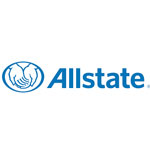About Wilson Consulting Group
Here’s why you want us!
Health insurance brokers work directly with individuals or businesses who are shopping for the best medical plan for their self or their employees. Why would you choose a health insurance broker over an agent? In short, brokers can save you time and money in the long run. Unlike buying home or auto insurance, health insurance policies need to be regularly assessed. As your healthcare needs can change at the drop of a hat, it is wise to have a health insurance broker who can provide the best options for your needs.
What Does a Health Insurance Broker Do?
The job of a health insurance broker is to provide clients with the best and most appropriate health insurance policies based on their unique needs and budgets. Brokers are authorized by specific health insurance companies to act on their behalf. Each health insurance company may offer different terms and rates that appeal to difference clients. Therefore, having multiple policies to compare can be highly beneficial to clients. Throughout this process, health insurance brokers essentially help clients select a health insurance company by providing essential information that result in an informed decision.
Questions to Ask a Health Insurance Broker
- Would I Have a Dedicated Account Manager?
When working with a health insurance broker, you do not want to be just another number. You want to be treated as an individual. Ask if you will have a designated account manager who you can count on to answer your questions not just when buying a health insurance policy, but indefinitely. Choose a broker who is focused on bringing you the best benefits that fit your needs, as well as someone you can rely on to return your calls if you have a question or concern days, weeks, or months later.
- What Type of Plans Can You Offer?
Your health insurance broker should provide a variety of plans so that you can best compare your options. Find out about indemnity health plans which require you to pay a certain percentage of healthcare costs while the health insurance company pays the rest. You will also want to learn more about managed care systems which include health maintenance organizations (HMOs) and preferred provider organizations (PPOs). Depending on the type of insurance policy you are looking for, you can expect to see a range of terms, rates, and benefits.
3. How Will You Streamline the Enrollment Process?
With the help of a health insurance broker, clients can choose the best healthcare policy for them and enroll. However, not all brokers handle the open enrollment process the same way. Ask the health insurance broker how he will help streamline the enrollment process to ensure that it is as quick and easy as possible. Ideally, the insurance broker will suggest a variety of tools and practices to make it simple and problem-free. If you need assistance while enrolling in health insurance, the broker should provide guidance to ensure that all paperwork is completed properly.
- How Does Your Company Handle Renewals?
Renewal is a required part of the health insurance process. Ask your health insurance broker how the company handles renewals. Some firms may have a systematic renewal process in place that jumpstarts the process. Typically, the systematic renewal process should begin a minimum of 45 to 60 days leading up to the renewal date. You will also want to ask if the broker will negotiate a new rate for your renewal each year. Remember, it is the responsibility of your health insurance broker to get you the best value for your investment.
- What Fees Do You Charge?
While some agents are salaried, most health insurance brokers rely on commissions for income. When a broker sells a product, the health insurance company will pay a commission to them. It is important to remember that these commissions are already built into the price of your insurance policy, meaning it does not cost you anything to use a broker. However, you will still want to ask if the broker charges any other types of fees for using their services. This will help ensure that you are not surprised with any extra costs later on.
- What Other Benefits Services Do You Offer?
If you are a business trying to put together an appealing benefits package for your employees, you may want to choose a benefits broker who offers a number of services. From life insurance to disability, bundling a variety of benefits together from one broker may be the best option in terms of price and convenience. It also makes sense for your company to work with benefits brokers who are familiar with carriers for all lines of coverage, including health, dental, wellness, long-term care, and voluntary benefits.
Contact a Health Insurance Broker
Choosing a qualified health insurance broker is not always easy. To help narrow down your options, have a list of questions ready to ask the insurance broker. These questions are designed to help you select a broker that is experienced, knowledgeable, and provides the best level of service. As employers’ health insurance renewals happen each year, you want to be prepared. Working with a health insurance broker that offers competitive pricing and value, along with personalized attention, can make this process much easier.












